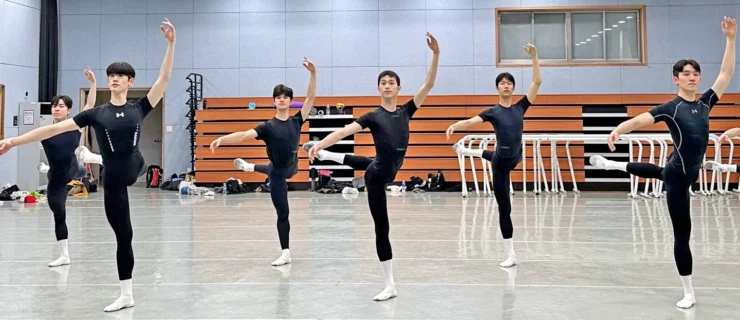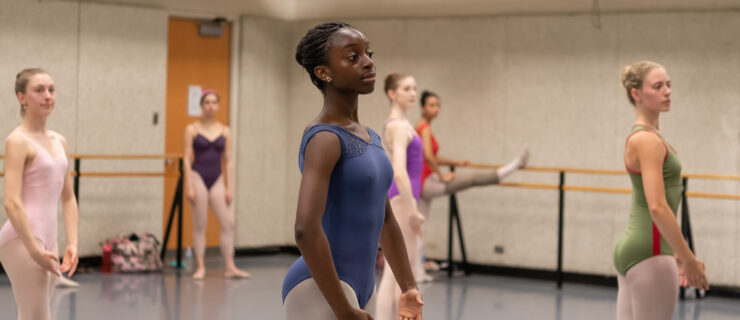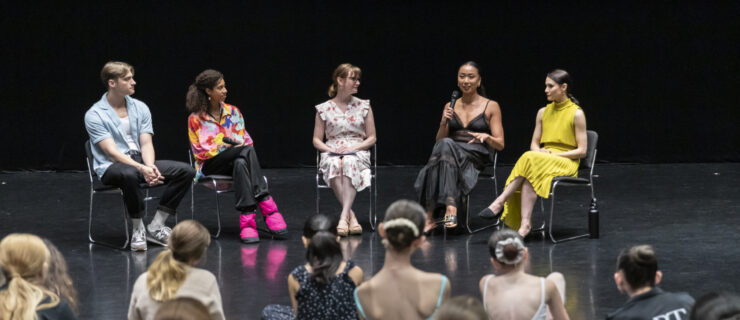Dreaming of Performing Professionally as a College Student? Here’s What You Need to Know
The summer before her freshman year at the University of Southern California’s Glorya Kaufman School of Dance, Jasmine Robinson was offered a traineeship with Complexions Contemporary Ballet. She approached USC, and they made it work: “My first semester, I was able to go to New York for a week,” Robinson says. “While I was there, I took company class and sat in on rehearsals.”

Then, something unexpected happened: Toward the end of her trainee week, co-artistic director Dwight Rhoden texted her. “A company member had been injured. There was a possibility I’d be asked to step in.” The next day, she was invited to join Complexions’ season at The Joyce Theater—which meant spending additional weeks in New York City and quickly learning two 45-minute ballets. Robinson reached out to her USC advisors and was given permission to stay. She Zoomed into academic classes and did schoolwork during rehearsal breaks so that she wouldn’t fall behind.
Performing with her dream company as a college freshman was an “amazing and rewarding experience,” Robinson says, but it didn’t lessen her commitment to finishing school. Now a junior BFA dance major, minoring in psychology, she feels grateful to have been able to foster professional connections without sacrificing her education. If you hope to follow in her footsteps, keep these considerations in mind.
Is the Gig Worth It?
Robinson couldn’t pass up the chance to perform with Complexions. At the time, it truly felt like a once-in-a-lifetime opportunity. But not every professional gig carries equal weight.
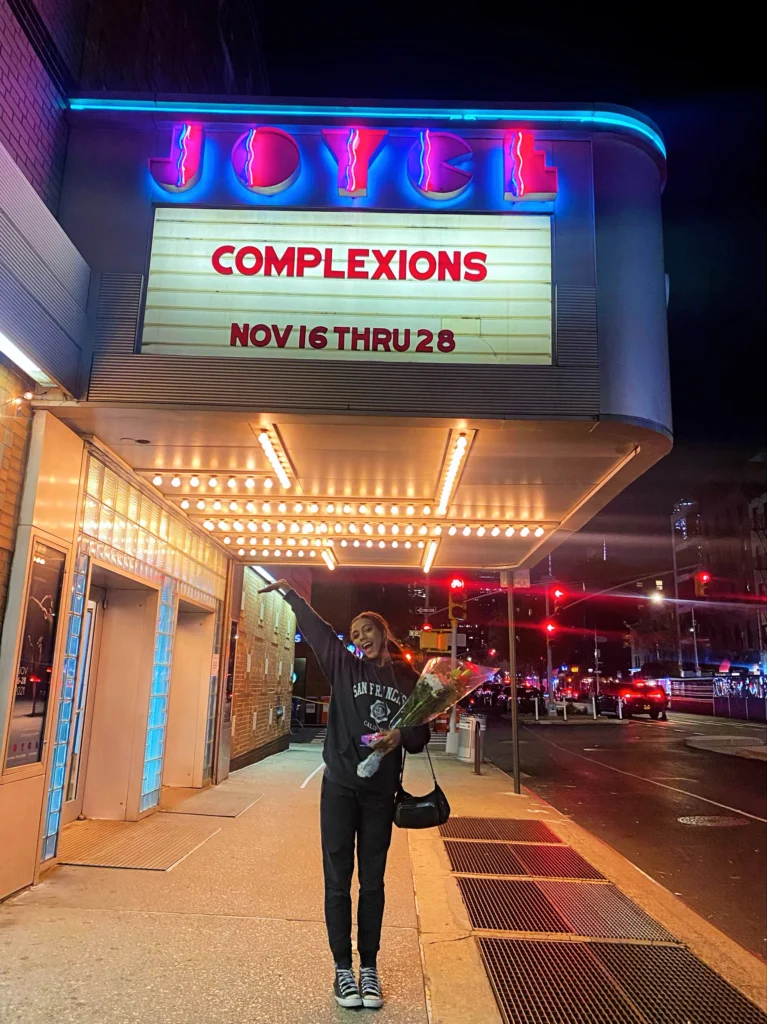
“Is this a full contract, a traineeship, a lead guesting role, or a company needing peasants for a production of Sleeping Beauty?” asks Sarah Wroth, chair of the ballet department at Indiana University Jacobs School of Music. Her program occasionally collaborates with nearby Indianapolis Ballet: “When they need extra performers, they’ll sometimes hire our dancers.” Joining a company’s corps de ballet for a show gives you experience, as well as something to put on your resumé. That said, “If it conflicts with school, it needs to be of comparable value to your education,” Wroth says. Students should also consider how their absence will impact their academics, not just their university dance repertoire.
Can You Honor Your Other Commitments?
As a college student, you’re constantly juggling academic assignments and deadlines. As a college dancer, you may also be required to rehearse and perform on campus. Dancers pursuing a BFA at Marymount Manhattan College have the opportunity to perform in on-campus concerts seven out of eight semesters. “We’ve had dancers switch from a BFA to a BA, which doesn’t have performance requirements, in order to perform professionally while still getting their degree,” says Nancy Lushington, assistant chair of MMC’s dance department. If you’re serious about seeking professional opportunities, perhaps your advisor could guide you through a similar shift.

Even if you aren’t required to perform in order to graduate, once you’re cast in a dance department concert, it’s important to honor that commitment. As Nutcracker season approaches, Wroth often fields requests from ballet schools seeking guest artists. “Guesting is great for students, especially financially,” she says. However, IU puts on its own Nutcracker, and Wroth wouldn’t recommend a student take a job elsewhere if it conflicted with their commitment to IU’s show. “It’s hard to say no, but that can be a teachable moment,” she says. “In the professional world, when you commit to something, you follow through.”
Should You Take a Leave of Absence?
Some opportunities might ask you to step away from school for a longer stretch of time—a semester, or even a full year. Most universities allow students to take a leave of absence and return later. For freshmen, deferring your admission may also be an option. How long you’re allowed to be gone varies; at MMC, it’s a maximum of one year. “After a year,” Lushington says, “you have to reaudition.” She cites one student who took what’s called a “maintenance of matriculation” (required to maintain enrolled status while away) to spend a year training at American Repertory Ballet’s Princeton Ballet School.
Wroth recalls a student who came to IU for a year but wasn’t sure if college was the right path for him. “He decided to go train at Ballet Austin,” she says. “When he realized he did want to be in a university program, he returned to complete his degree. After graduation, he got a job with Miami City Ballet.” Another student was selected for Oregon Ballet Theatre 2 based on his performance at OBT’s summer program. “He’d finished his third year with us, and he didn’t have many credits left,” Wroth says. “We worked with him to complete those credits early, so he could walk away with his degree in hand.”
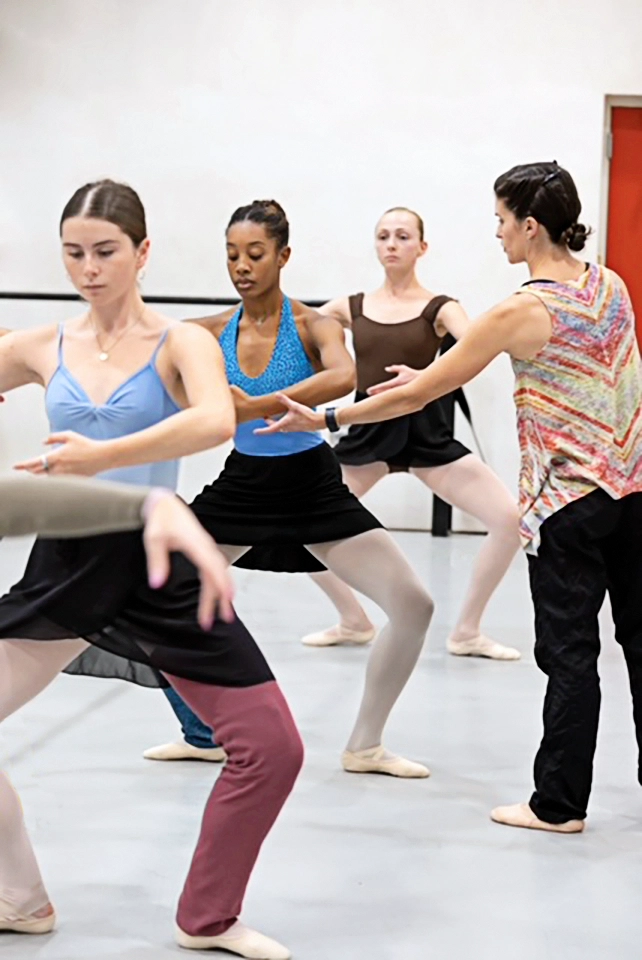
A big key here is timing. If you withdraw once a semester has started, you may lose tuition money you’ve already paid. Financial aid packages can also be affected. Opting to graduate early, meanwhile, involves figuring out what credits you still need and building your schedule in a way that gets you across the finish line quickly.
Communicate, Communicate, Communicate
As soon as you get an offer—or if you’re thinking of auditioning for a position—get in touch with your college counselor or academic advisor to talk through your options. The earlier you request accommodations, the more likely you are to receive them. It’s also vital to communicate with the choreographer or company/school director who hires you. “Don’t be afraid to speak to the people higher up, to connect with them in a human way,” Robinson says. “It’s okay to say, ‘This is a lot, I’m doing the best I can, here are some things that might help.’ Dwight and [co-artistic director] Desmond Richardson were able to be accommodating to me as a student because I communicated openly with them.”
After performing with Complexions a second time in the spring of her freshman year, Robinson decided to devote her sophomore year to school. “I’ve been really focusing on my training,” she says. She’s also been powering through courses for her psychology minor—which means that if she receives another job offer she can’t refuse, she’ll have fewer obstacles to earning her diploma.


